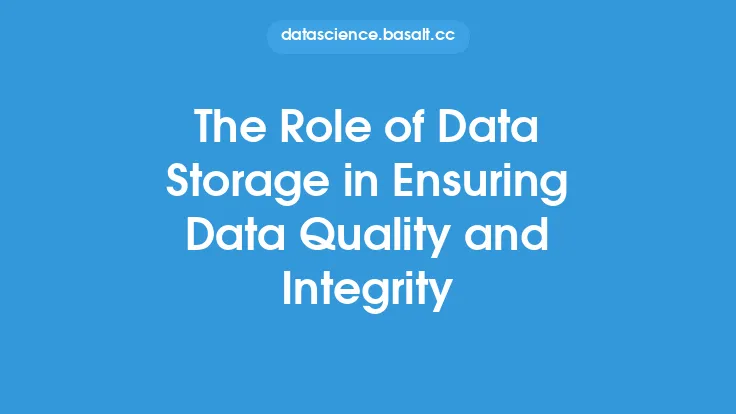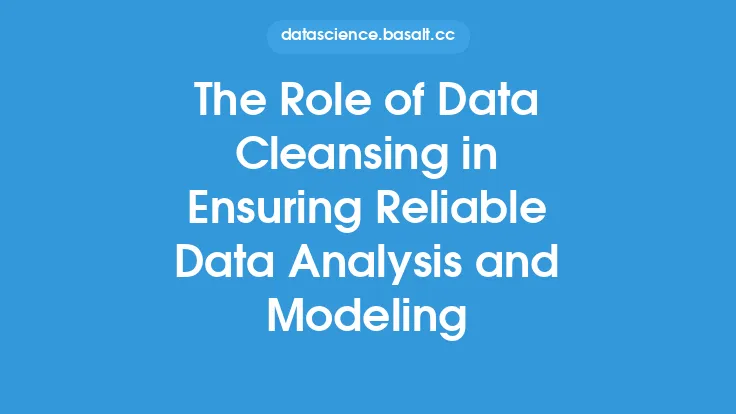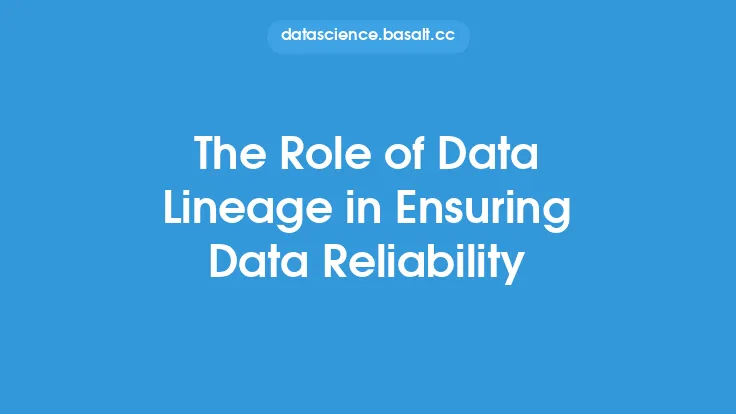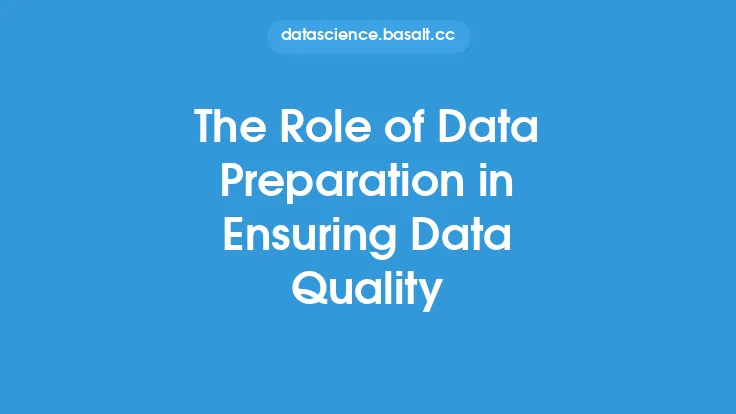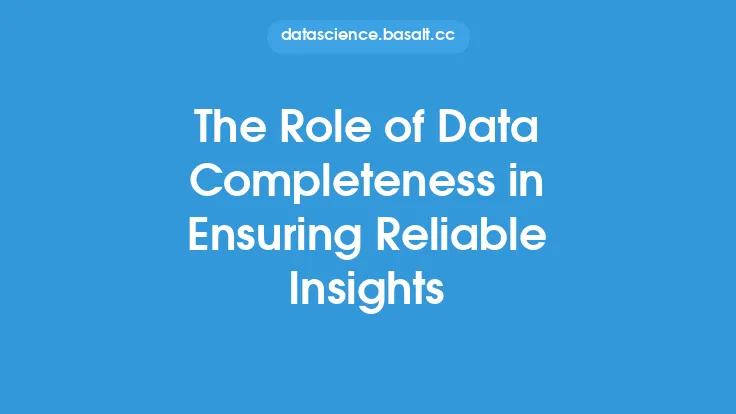Data quality and reliability are crucial aspects of any organization that relies on data-driven decision-making. With the increasing volume, velocity, and variety of data being generated, it is becoming more challenging to ensure that data is accurate, complete, and trustworthy. One key concept that plays a vital role in ensuring data quality and reliability is data provenance. Data provenance refers to the documentation of the origin, history, and evolution of data, including its creation, processing, and transformation. In this article, we will delve into the role of data provenance in ensuring data quality and reliability, and explore its significance in various aspects of data management.
Introduction to Data Provenance
Data provenance is a critical aspect of data quality, as it provides a clear understanding of the data's lineage, including its source, processing, and transformation. By tracking the provenance of data, organizations can ensure that data is accurate, complete, and trustworthy. Data provenance involves capturing metadata about the data, such as its creation date, author, and processing history. This metadata can be used to verify the authenticity and integrity of the data, and to identify any errors or inconsistencies that may have occurred during its processing.
Benefits of Data Provenance
The benefits of data provenance are numerous, and can be seen in various aspects of data management. Some of the key benefits include:
- Improved data quality: By tracking the provenance of data, organizations can identify and correct errors, and ensure that data is accurate and complete.
- Increased transparency: Data provenance provides a clear understanding of the data's lineage, making it easier to track and verify the data's origin and processing history.
- Enhanced trust: By providing a clear understanding of the data's provenance, organizations can build trust with their stakeholders, including customers, partners, and regulatory bodies.
- Better decision-making: With accurate and trustworthy data, organizations can make informed decisions, and reduce the risk of errors or misinterpretations.
Data Provenance in Data Processing
Data provenance plays a critical role in data processing, as it provides a clear understanding of the data's transformation and evolution. By tracking the provenance of data, organizations can ensure that data is processed correctly, and that any errors or inconsistencies are identified and corrected. Some of the key aspects of data provenance in data processing include:
- Data ingestion: Tracking the source and origin of data, including its creation date, author, and processing history.
- Data transformation: Capturing metadata about the data's transformation, including any processing, aggregation, or filtering that occurs.
- Data storage: Tracking the storage and management of data, including its location, format, and access controls.
Data Provenance in Data Integration
Data integration is a critical aspect of data management, as it involves combining data from multiple sources into a single, unified view. Data provenance plays a vital role in data integration, as it provides a clear understanding of the data's origin, processing, and transformation. By tracking the provenance of data, organizations can ensure that data is integrated correctly, and that any errors or inconsistencies are identified and corrected. Some of the key aspects of data provenance in data integration include:
- Data mapping: Tracking the mapping of data from multiple sources, including its transformation and processing.
- Data reconciliation: Capturing metadata about the data's reconciliation, including any errors or inconsistencies that occur.
- Data validation: Verifying the accuracy and completeness of the integrated data, and ensuring that it meets the required standards and regulations.
Data Provenance in Data Analytics
Data analytics is a critical aspect of data-driven decision-making, as it involves analyzing and interpreting data to gain insights and make informed decisions. Data provenance plays a vital role in data analytics, as it provides a clear understanding of the data's origin, processing, and transformation. By tracking the provenance of data, organizations can ensure that data is accurate and trustworthy, and that any errors or inconsistencies are identified and corrected. Some of the key aspects of data provenance in data analytics include:
- Data selection: Tracking the selection of data for analysis, including its source, processing, and transformation.
- Data processing: Capturing metadata about the data's processing, including any aggregation, filtering, or transformation that occurs.
- Data visualization: Verifying the accuracy and completeness of the data visualizations, and ensuring that they meet the required standards and regulations.
Technical Aspects of Data Provenance
From a technical perspective, data provenance involves capturing and storing metadata about the data, including its creation, processing, and transformation. Some of the key technical aspects of data provenance include:
- Metadata management: Capturing and storing metadata about the data, including its creation date, author, and processing history.
- Data lineage: Tracking the data's lineage, including its origin, processing, and transformation.
- Data versioning: Capturing metadata about the data's versioning, including any changes or updates that occur.
- Data encryption: Ensuring the security and integrity of the data, including its encryption and access controls.
Best Practices for Implementing Data Provenance
Implementing data provenance requires a clear understanding of the data's origin, processing, and transformation. Some of the key best practices for implementing data provenance include:
- Define data provenance requirements: Clearly define the requirements for data provenance, including the metadata to be captured and the standards to be followed.
- Implement metadata management: Implement a metadata management system to capture and store metadata about the data.
- Track data lineage: Track the data's lineage, including its origin, processing, and transformation.
- Ensure data security: Ensure the security and integrity of the data, including its encryption and access controls.
Conclusion
In conclusion, data provenance plays a critical role in ensuring data quality and reliability. By tracking the provenance of data, organizations can ensure that data is accurate, complete, and trustworthy. Data provenance involves capturing metadata about the data, including its creation, processing, and transformation. Its benefits include improved data quality, increased transparency, enhanced trust, and better decision-making. By implementing data provenance, organizations can ensure that data is processed correctly, integrated accurately, and analyzed reliably. As data continues to play an increasingly important role in decision-making, the importance of data provenance will only continue to grow.
